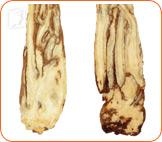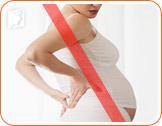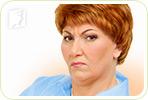With more than a third of American adults annually turning to alternative medicine, it's important to know more about the endless treatment options available. With a myriad of different menopause symptoms and many products boasting its different medicinal properties, it's important to know more about some of the different herbal treatments out there and how they can treat your symptoms.
What Is Dong Quai?

Dong Quai, scientifically known as Angelica sinensis, is an herb native to China that hails from the Apiaceae family and has been used medicinally for many years. The dried root has been used in Chinese medicine to treat fatigue, anemia, blood pressure, and other ailments for thousands of years.
Like many of the herbal products on the market, it boasts anti-inflammatory, sedative, antispasmodic, and analgesic qualities. In terms of use for women, it has been used for the reproductive system and is sometimes suggested for premenstrual syndrome (PMS) and general menopause problems.
Should I Use Dong Quai for Menopause?
Dong Quai can effectively treat many menopausal symptoms, including: dizziness, hot flashes, cramps, sleeping disorders, nerve problems, and osteoporosis. It does this by increasing estrogen within the body by adding phytoestrogens.
There is a warning that comes with phytoestrogens, and that is that they are plant hormones and, whilst increasing our hormonal levels, they are also known for lowering the responsiveness of our hormone making glands. In short, dong quai is sometimes used as a short-term menopause treatment, but you should look for an herbal supplement that increases estrogen and boosts your production glands.
Concerns over dong quai include:

- Don't use alongside excessive menstrual bleeding, bloating, diarrhea, or flu
- As it contains estrogenic compounds, pregnant women, breast cancer sufferers, and children should steer clear
- Don't use it when on blood thinning medication
- It has been known to lead to photosensitivity
More about Herbal Menopause Treatments
Dong quai can be a good treatment for menopause; however, don't forget to check out the rest of the market as some things are known for treating specific problems that are associated with menopause. Other herbal supplements include: ginseng, wild yam, and black cohosh. Click on the following link for more information on menopause treatments.
Sources
- BMJ Group. "Menopause: What is it?" Patient Leaflet. 2007.
- Hopkins, Virginia. Lee, John R. M.D. What Your Doctor May Not Tell You About Menopause. New York: Warner Books Inc., 1996.
- Love, Susan M.D. Menopause and Hormone Book. New York: Three Rivers Press, 2003.
- Martin, Raquel. The Estrogen Alternative. Rochester, VT: Healing Arts Press, 2000.



